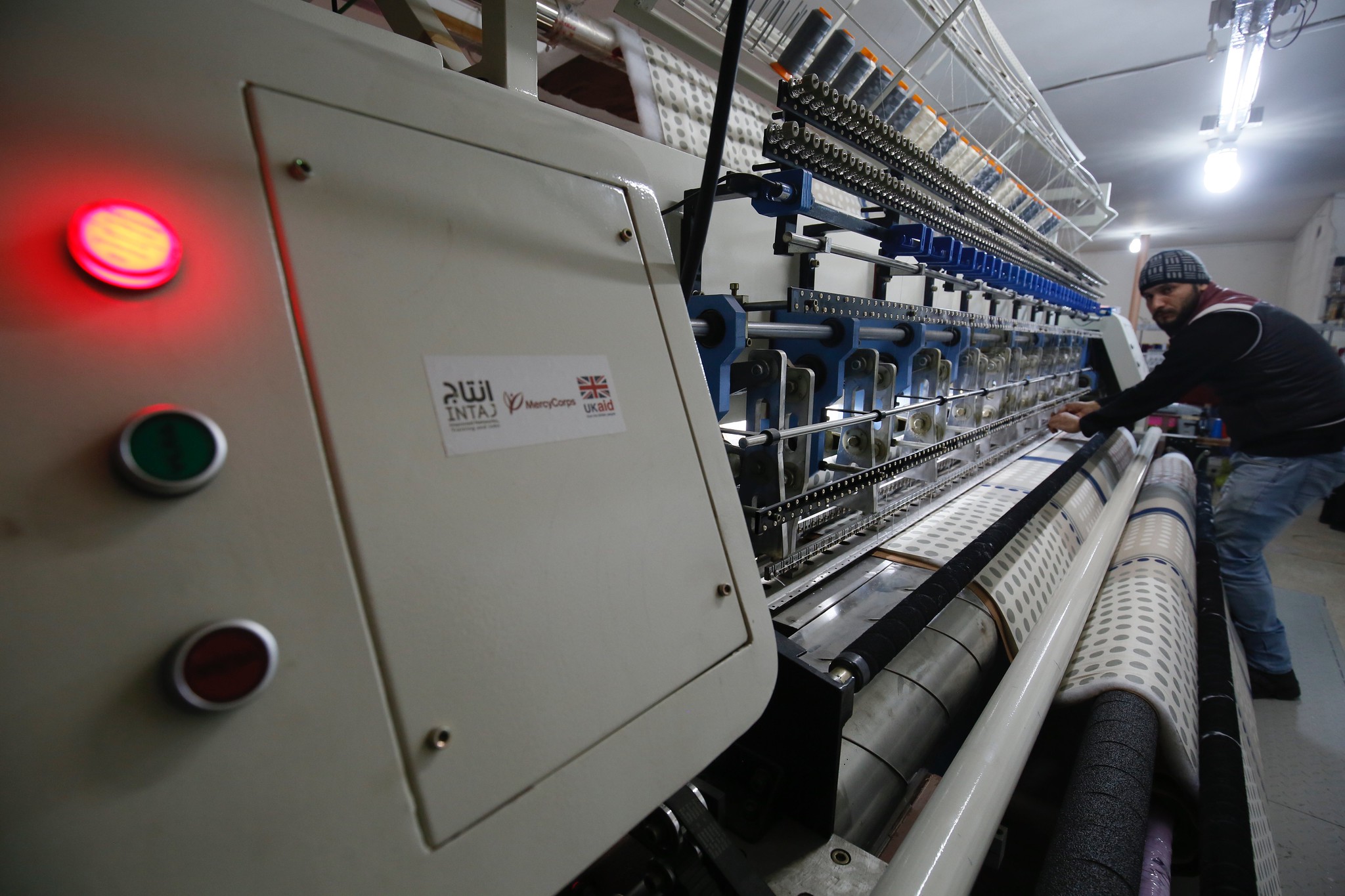A group of charities has warned that refugees are grossly underrepresented in the workforce and called on employers to provide more opportunities and help alleviate unemployment.
The UN Refugee Agency (UNHCR), the International Organization for Migration (IOM), andBusiness in the Community (BITC) released a set of guidelines in conjunction with the UK government on how employers can improve and increase their workforce by hiring more refugees.
The guidelines recommendations include recognising international experience and qualifications, creating a more accessible application and interview process, offering English language training in the workplace, creating career progression schemes for part-time workers and creating more apprenticeships to help build skills and experience.
Refugee Unemployment

Sawsan, a Syrian refugee from Damascus, who is now working as an accountant in a textile manufacturing business. Credit: Russell Watkins/DFID/Flickr
Currently, there are an estimated 120,000 refugees with the right to work living in the UK, but the unemployment rate is three times that of people born in the UK.
Almost half have qualifications for high-skilled jobs, and many have work experience, but still struggle to find work despite the demand for workers in entry-level jobs.
UNHCR spokesperson Rossella Pagliuchi-Lor explained that there was a “huge capacity for refugees to contribute to the UK economy”.
“There really is untapped potential here that could be a boon for the local economy.
Rossella Pagliuchi-Lor, UNHCR Representative to the UK
“There really is untapped potential here that could be a boon for the local economy, and at the same time a powerful vehicle for better integration,” she said.
Dipti Pardeshi, IOM Chief of Mission in the UK, added that by increasing refugee employment, communities would become more inclusive and see socioeconomic benefits.
“It’s not only about refugees learning about life here in Britain. To have inclusive societies and workforces, employers can also make strides to better understand refugees and identify beneficial employment opportunities, both for companies and refugees themselves,” Pardeshi said.
Adding Value
 Credit: pxhere
Credit: pxhere
We recognise the added value that refugees bring to our company through their wealth of expertise and skills.
John Pettigrew, CEO of National Grid
A number of businesses are already putting in place programmes which offer “refugee-friendly” employment by stripping away recruitment barriers, and creating inclusive workplaces, explained Nicola Inge, BITC’s Employment Campaign Director.
Waitrose provides work placements to Syrian refugees. Accounting company Grant Thornton is actively trying to hire those with accountancy qualifications not recognised in the UK. IKEA and the National Grid are also actively employing refugees.
“We recognise the added value that refugees bring to our company through their wealth of expertise and skills, which ensure we have the best minds in the world to meet the needs of our customers and bill payers,” explained National Grid CEO John Pettigrew.
“Integrating more refugees into the UK workforce is not only the right thing to do, it makes business sense. Increasing refugee employment means the UK not only gains the additional economic benefits of their work but improved community cohesion too.”
“These new guidelines will help even more employers to make practical changes and discover the benefits of employing refugees – whether it’s meeting talent shortages, improving employee engagement or increasing diversity,” Inge added.







